2025 Transmittal Updates
The 2025 Legislative Session has officially reached its halfway point! With the sun shining and the legislature’s well-timed spring break finally upon us, we hope you get the chance to rest, recharge, and enjoy the nicer weather. As we catch our breath and gear up for the final stretch, we want to take this opportunity to celebrate our collective successes. Thanks to the dedication and advocacy of watershed-defenders like you, we have successfully defeated several bills that posed serious threats to conservation efforts in Montana. SB 146, the “takings bill” that favored corporate interests over community decision-making procedures, died on the Senate floor last month. SB 209, a proposal to undermine landowners' ability to implement conservation easements to preserve their land for future generations, was unanimously tabled by the Senate Judiciary Committee. Your voices are making a difference!
We hope these victories are energizing, because our work is far from over. Several dangerous bills targeting the Montana Environmental Policy Act (MEPA) are still moving forward, and we must act now to stop them.
Bills We Oppose
🔴 SB 221: Generally revise the Montana environmental policy act
Sponsor: Wylie Galt, Republican, SD 39 — Martinsdale, MT
SB 221 would severely limit the state’s obligation to consider climate change when evaluating new project proposals under MEPA. This bill is a short-sighted attack on our right to a clean and healthful environment. It will decimate the few existing mechanisms that our state agencies has for avoiding environmental catastrophes. SB 221 passed the Senate on a 37-13 vote and has since been referred to the House Natural Resources Committee. We urge you to join us in contacting these committee members and your House representative and asking them to vote NO on SB 221.
🔴 HB 285: Would revise laws related to the Montana Environmental Policy Act
Sponsor: Brandon Ler, Republican, HD 33 — Savage, MT
HB 285 goes even further, seeking to eliminate MEPA entirely as a tool for upholding Montanans’ constitutional right to a clean and healthful environment. This bill will render our strongest environmental protection laws as functionally useless. HB 285 threatens the foundation of Montana’s primary environmental protections, and we need your voices to help defeat it. Soon, there will be a second opportunity for public testimony on this bill in the Senate Natural Resources Committee. We encourage you to contact committee members, submit public testimony, or be there at the podium in person.
🔴 HB 466 – A Threat to Montana’s Environmental Protections
Sponsor: John Fitzpatrick, Republican, HD 76 — Anaconda, MT
HB 466 introduces categorical exclusions within the Montana Environmental Policy Act (MEPA), allowing certain state actions to bypass environmental review. This weakens public oversight by eliminating MEPA review for select projects, reducing transparency, and limiting public input. Without MEPA’s safeguards, projects with potentially significant environmental consequences—such as industrial development, mining, and infrastructure expansion—could proceed without fully assessing long-term impacts on water quality, fisheries, and local communities.
This bill sets a dangerous precedent, opening the door for further exemptions and weakening MEPA’s role in protecting Montana’s natural resources. The Flathead Lakers strongly oppose HB 466 because it threatens the health of Flathead Lake, the surrounding watershed, and Montana’s environment. We urge our members to contact their legislators and voice their opposition to this harmful bill.
🔴 HB 664: Proposes the repeal of numeric nutrient standards for state water quality
Sponsor: Bill Mercer, Republican, HD 46 — Billings, MT
HB 664 eliminates numeric nutrient standards from Montana’s water quality regulations, replacing them with vague narrative standards that are harder to enforce. By repealing limits on nitrogen and phosphorus pollution, the bill weakens Montana’s ability to protect waterways from nutrient-driven degradation, such as harmful algal blooms, fish die-offs, and declining aquatic ecosystems. It also directs the Department of Environmental Quality (DEQ) to remove numeric standards from regulations, further reducing accountability for pollution control.
Without clear numeric limits, Montana risks legal action from downstream states impacted by nutrient pollution flowing beyond its borders. Numeric standards help prevent pollution, while narrative standards only react after damage has already occurred. The Flathead Lakers strongly oppose HB 664 because it threatens Montana’s clean water and undermines essential tools for protecting water quality. We urge our members to contact their legislators and oppose this harmful bill.
🔴 HB 736 – A Loophole for Increased Water Pollution
Sponsor: Steve Fitzpatrick, Republican, HD 24 — Great Falls, MT
HB 736 establishes nutrient pollutant loading offsets, allowing point source polluters—such as wastewater treatment plants and industrial facilities—to offset their pollution by funding nutrient reduction projects elsewhere in the watershed. This approach could worsen water quality by allowing new or increased discharges without ensuring that offsets achieve the same level of nutrient removal as direct reductions. Nonpoint source pollution, such as agricultural runoff and stormwater, is difficult to quantify, variable over time, and lacks direct regulatory enforcement. Tying permitted pollution limits to reductions in these sources creates a loophole that may result in more nutrient pollution rather than less.
HB 736 weakens accountability by shifting the burden of pollution control from regulated industries to landowners, farmers, and rural communities. It makes enforcement more difficult, as nutrient trading is hard to monitor and verify, putting Montana’s clean waters at risk. Flathead Lake is one of the cleanest, clearest lakes in the world, and we must not sacrifice its water quality for regulatory convenience. The Flathead Lakers strongly oppose HB 736 and urge our members to contact their legislators and vote NO to protect our waters and uphold Montana’s commitment to clean water stewardship.
Want to know who represents you in the Montana Legislature? Use this tool to find your local legislator and stay informed on the decisions shaping our watershed.
Bills We Are Monitoring
🟡 SB 168: Revise Lakeshore Protection Permits
Sponsor: Greg Hertz, Republican, SD 7 — Polson, MT
SB 168 introduces a statute of limitations for actions against property owners or contractors for violating lakeshore regulations, allows exemptions from permitting for minor activities, and clarifies protections and exceptions regarding lakeshore structures. The bill revises laws related to lakeshore protection in Montana. It introduces a statute of limitations for actions against property owners or contractors for violating lakeshore regulations, allows exemptions from permitting for minor activities, and clarifies protections and exceptions regarding lakeshore structures.
Bills We Support
🟢 HB 242: Revise fines related to aquatic invasive species
Sponsor: Tom Millett, Republican, HD 2 — Marion, MT
HB 242 increases fines and penalties for violations at Aquatic Invasive Species (AIS) check stations, reinforcing the importance of stopping for inspections. In the 15 years since the 61st Montana Legislature adopted the Aquatic Invasive Species Act, fines for evading boat check stations have remained unchanged—set at $500 for a first offense and $750 for a second offense. HB 242 updates these outdated penalties, raising the first-offense fine to $1,000 and the second-offense fine to $1,500. This increase reflects the growing threat of AIS and the need for stronger deterrents to ensure compliance. AIS, such as quagga and zebra mussels, pose a severe risk to Montana’s waterways, threatening ecosystems, infrastructure, and local economies.
The Flathead Lakers strongly support HB 242 because prevention is the most effective defense against AIS. Strengthening enforcement and increasing fines will help ensure that all watercraft are properly inspected, reducing the risk of infestation and preserving Montana’s pristine lakes and rivers. We urge legislators to vote YES on HB 242 to enhance AIS protections and safeguard Montana’s waters for future generations.
🟢 HB 477 – Protecting Montana’s Waters by Phasing out the use of Styrofoam
Sponsor: Marilyn Marler, Democrat, HD 94 — Missoula, MT
HB 477 prohibits the use of expanded polystyrene foam (Styrofoam) in food-related businesses across Montana, reducing a major source of persistent plastic pollution. Styrofoam is non-biodegradable, easily breaks into microplastics, and is nearly impossible to recycle, making it a leading contributor to litter in Montana’s waterways, including Flathead Lake. When discarded, it pollutes our environment, harms wildlife, and threatens water quality. By eliminating its use in food service, this bill takes a crucial step toward reducing plastic waste and protecting Montana’s natural resources.
The Flathead Lakers strongly support HB 477 because preventing pollution at the source is the most effective way to keep our lakes and rivers clean. Alternatives to Styrofoam are widely available and already in use in many communities. By passing this bill, Montana can lead in environmental stewardship while protecting public health, wildlife, and our treasured waterways. We urge legislators to vote YES on HB 477 to keep unnecessary plastic waste out of our environment and safeguard Montana’s clean water for future generations.
HB 477 proposes a phased approach to eliminate the use of expanded polystyrene foam (commonly known as Styrofoam) in food-related businesses across Montana. The bill outlines the following timeline:
By January 1, 2028: Restaurants and food establishments are prohibited from serving food or beverages for on-premises consumption using polystyrene foam containers.
By January 1, 2029: The prohibition extends to all restaurants, food establishments, resorts, and hotels, preventing them from serving or packaging prepared food in polystyrene foam containers or providing such containers for food or beverages.
By January 1, 2030: Food packagers are barred from using polystyrene foam containers for bakery products or other prepared foods.
The bill allows for exemptions in cases where no acceptable alternatives exist, or compliance would cause undue hardship. Applications for exemptions can be submitted to the Department of Environmental Quality, which is authorized to grant them based on specific criteria.
This structured phase-out aims to reduce polystyrene pollution in Montana's environment, addressing the material's persistence and harmful impact on wildlife and natural resources.
After the transmittal break, lawmakers’ and lobbyists’ will be submitting amendments and trying to pass bills at a rapid speed. Please stay tuned for upcoming schedule changes, action updates, and more ways to make your opposition heard. Like you, we believe that Montana’s future is worth fighting for.
Want to communicate with legislators in a fast and secure manner? Use the Public Participation Application to sign up to sign up to provide testimony remotely or send messages directly to legislators.
Thank you for your continued dedication and support — let’s keep this momentum going!

